Menu
Menu
Copts and the COVID-19 Pandemic
As the descendants of ancient Egyptians, Copts have endured plagues and reckoning revolutions before. This time though, they join a global and collective moment that questions structural bias, exclusion, and often silenced members of their own Coptic community, including women, Black Copts, working class congregants, as well as their Coptic queer kin. As a Coptic woman myself, I am both privileged and honored to join in these virtual conversations, galvanized by a growing number of Coptic Instagram accounts that have also inspired this work including Coptic Survivor, Coptic Culture, Coptic Activism, Coptic Queer Stories, Progressive Copts, Coptic Feminists, El-Mahaba Center, and Egypt Migrations (among many others, and growing). These efforts have garnered deep resistance, often in the form of online trolling by largely young and male Copts colloquially known as “Orthobros” or “Orthozealots.” Orthobros often target women and anyone who may express or challenge Orthodox mainstream views. Some of the trolling, intentionally or not, even occurs at the hands of Orthodox clergy and bishops.
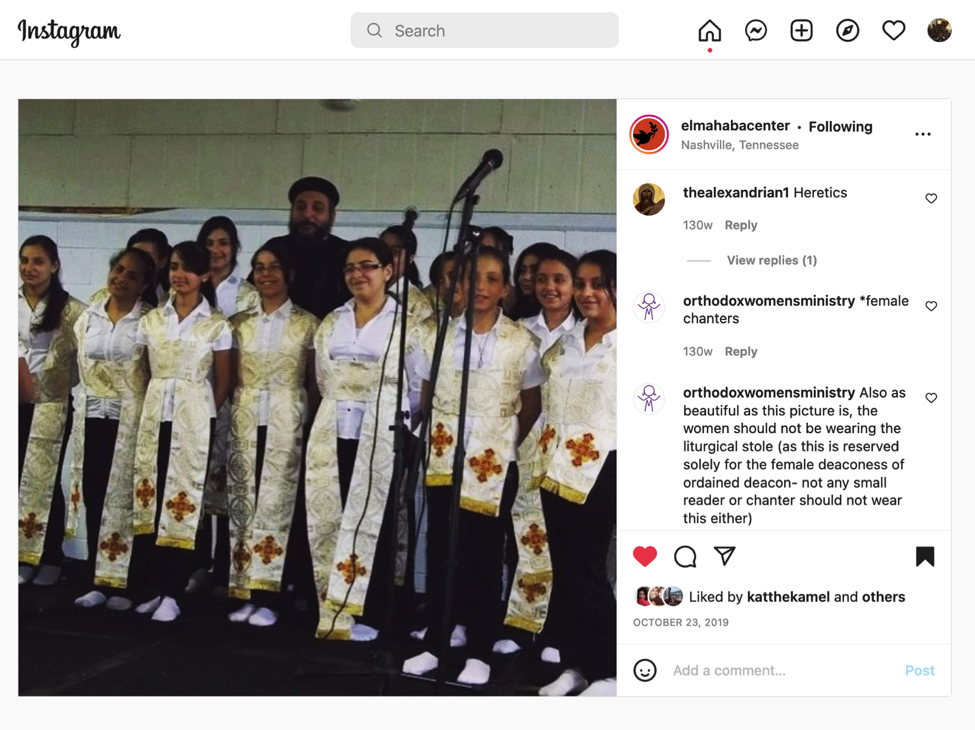

In 2011, Fr. Cherubim attended an open house event at St. Mina’s Coptic Orthodox Church of Nashville, TN. There, the church’s all-girls choir performed non-liturgical songs for non-Coptic and Coptic visitors alike …
And rather than splurge on expensive choir uniforms, these young women strategically opted to wear the liturgical stoles that their male counterparts traditionally wear as cantors and readers during official and liturgical services. The bustling audience did not think twice, and their performance was greeted with smiles all round. This photo was even posted on the Church’s Facebook group. #ElMahaba Center posted this photo online on their own social media platforms with the quote “One step at a time in Nashville.” They wanted to highlight a growing interest in Coptic women’s participation in liturgical settings. While this post had gone unnoticed on the Church’s public Facebook account, it garnered a lot of attention and stirred up a fierce and familiar conversation about women’s sounded roles in the Church on ElMahaba Center’s IG account. Read through the comments to learn more about the debates and challenges that Coptic women face when they raise the fact that #CopticWomenSingToo. Many thanks to ElMahaba Center for their assistance and in sharing this story.
Yet, despite these challenges, alternative Coptic Instagram accounts and social media presence have been successful to pressure, represent, and offer alterative views and ways of being Coptic Orthodox. In the end, that is why projects such as Coptic Women Sing Too matters: it offers a to space to honour, imagine, practice, represent, teach, and sing alternative Coptic gendered identities. Join us by spreading the word, submitting your own videos, and even by just using the #CopticWomenSingToo hashtag.
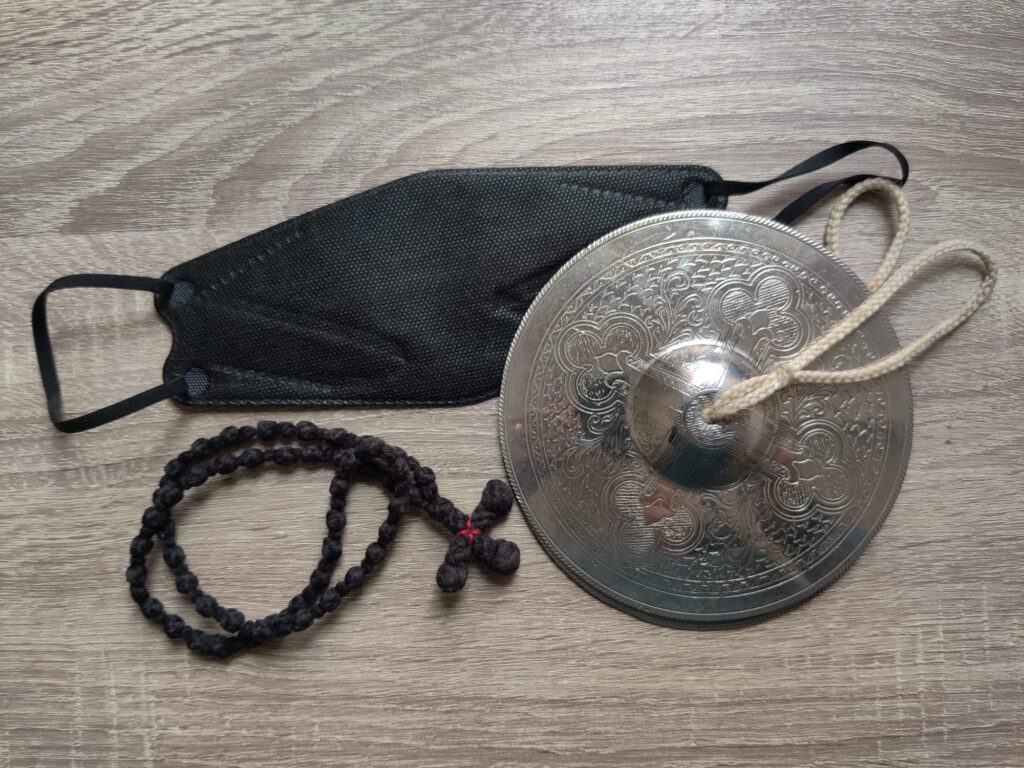

A mask and Coptic liturgical cymbals. Photo by the author.
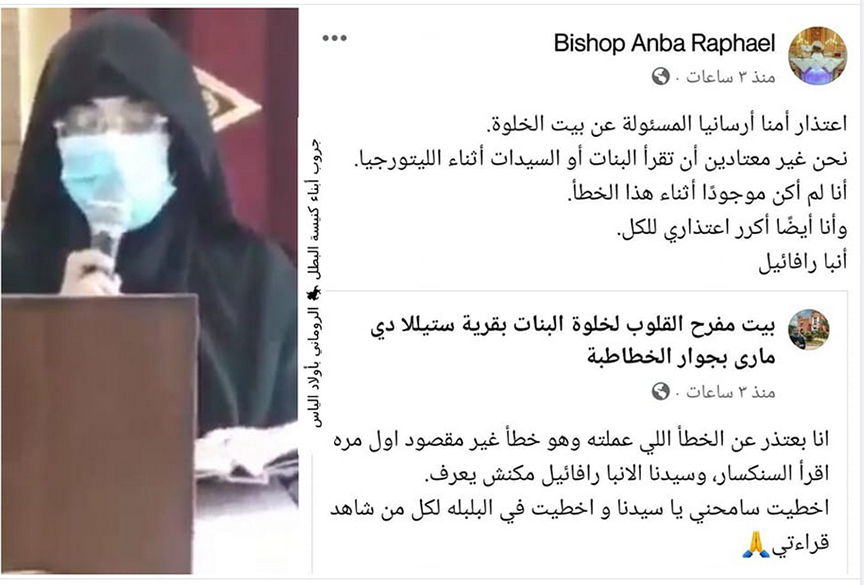

Bishop Rafael makes Mother Arseni publicly apologize for reading the Synaxarion during an Orthodox liturgy at a women’s retreat center that she runs in Egypt. While he is quick to highlight that he was not there, he also issues a public apology. After outcry and pressure from activist Coptic social media accounts, Bishop Rafael took down this post, but only after it had been shared and reshared online. Translation of post here. Screen shot by the author.
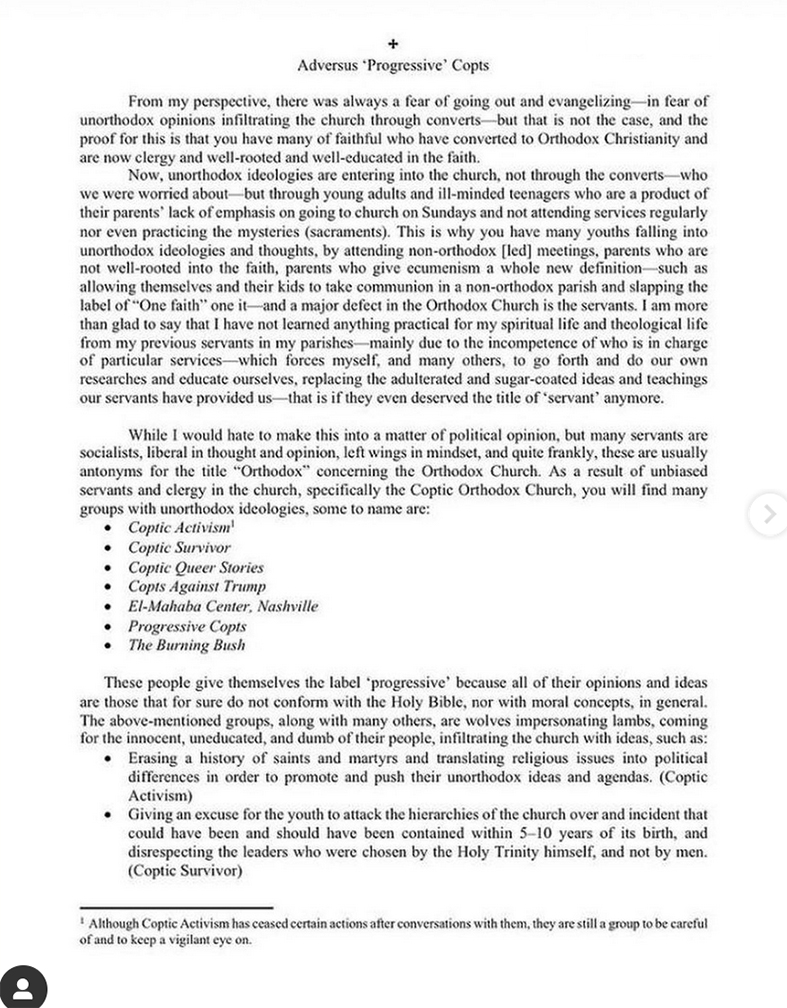
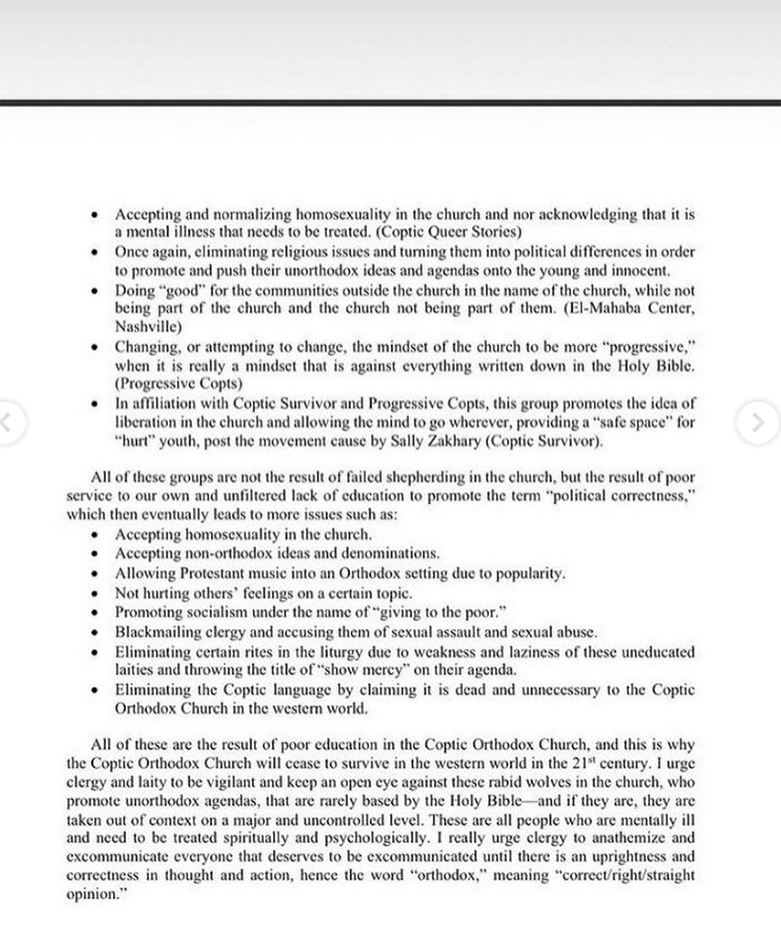
Previous
Next

Screen shot by the author.